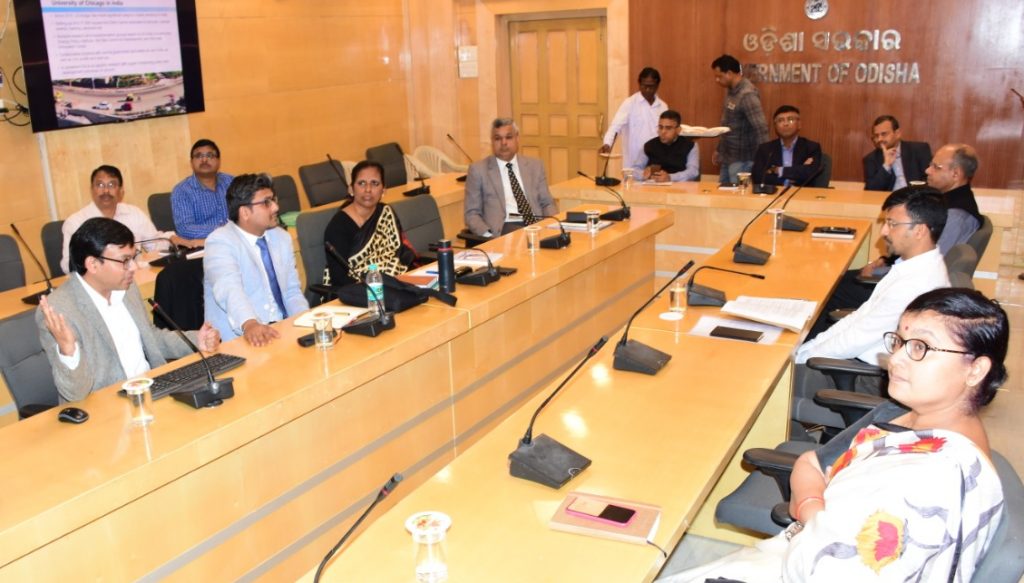Bhubaneswar: In yet another step towards implementation of 5T module of governance, the state government has envisioned developing a Data Policy Innovation Centre (DPIC) in technical collaboration with the University of Chicago.
A high-level meeting to this effect was held under the chairmanship of Chief Secretary Asit Tripathy at Lok Seva Bhawan here, Tuesday, wherein Agriculture and Farmers’ Empowerment secretary Saurabh Garg outlined the utility of a DPIC for Odisha.
The theme expert and South Asia Director, Energy Policy Institute at the University of Chicago presented different contours of DPIC with its technical and application possibilities.
Considering the proposals, the Chief Secretary directed the officials to lay out details of the proposal in convergence with existing similar systems in the departments like Planning & Convergence, General Administration, Electronics & IT and Finance. The meeting gave in principle approval for use of ‘big data’ in formation of innovative policies and service delivery.
According to sources, DPIC can serve as a centre of excellence for accumulation of ‘big data’ from different sources through cutting-edge machine learning and artificial intelligence, analyse it using modern econometrics and statistical models and come out with required innovative policy guides.
It can also create a framework for collaborative work between departments and faculty of Chicago University on select policy areas to design new solutions and evaluate its field outcome. This collaboration will help in enhancing in-house capacity in the government for use of ‘big data’, they said.
There is a wide scope for use of ‘big data’ in various sectors of governance. The principal potential areas outlined in the meeting includes improving water and energy use policies, encouraging crop diversification through information on potential yield and farming technique, reducing pollution through predictive targeting models, improving learning outcomes, reducing distributive loss of power through strategic enforcement and behavioral changes.
